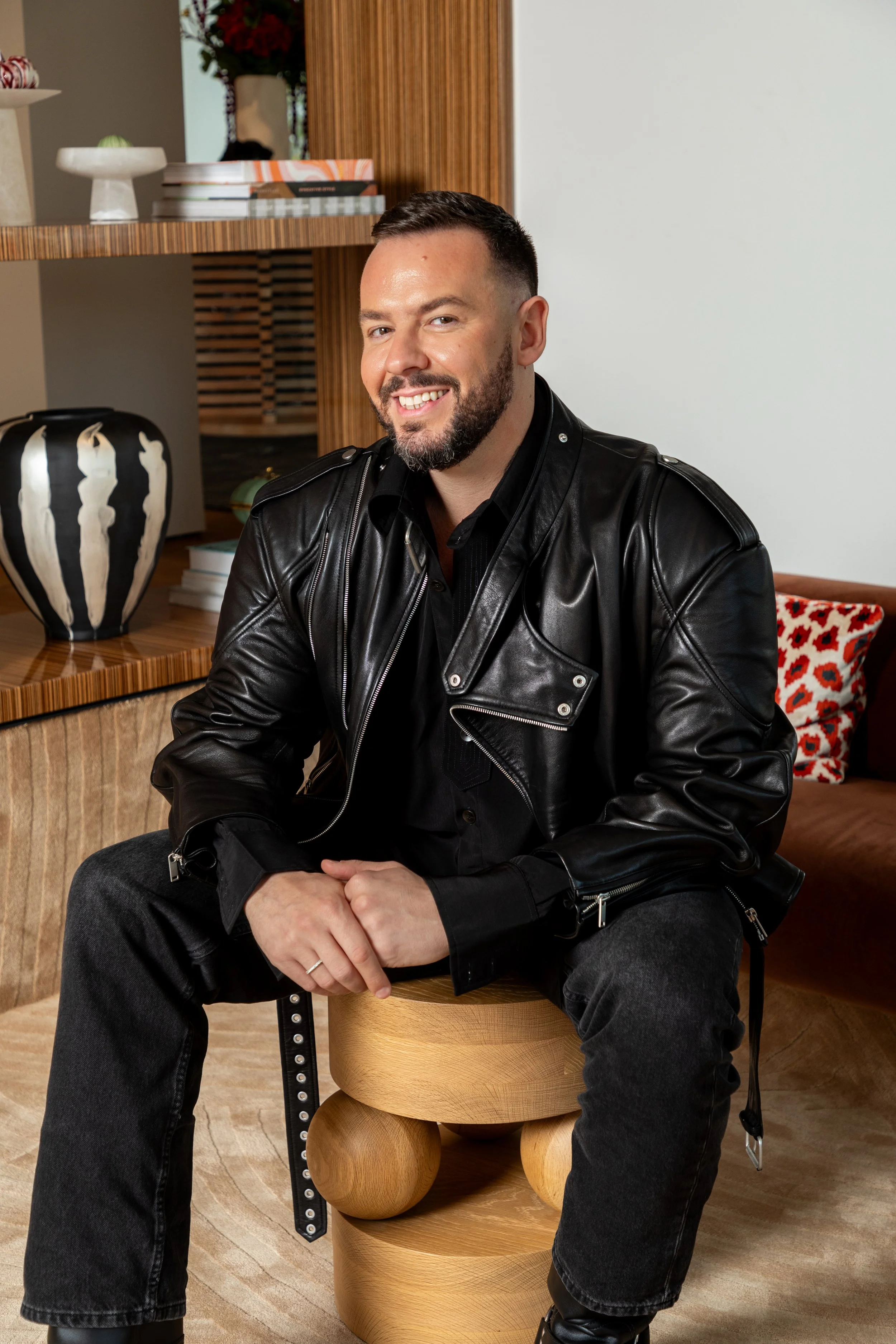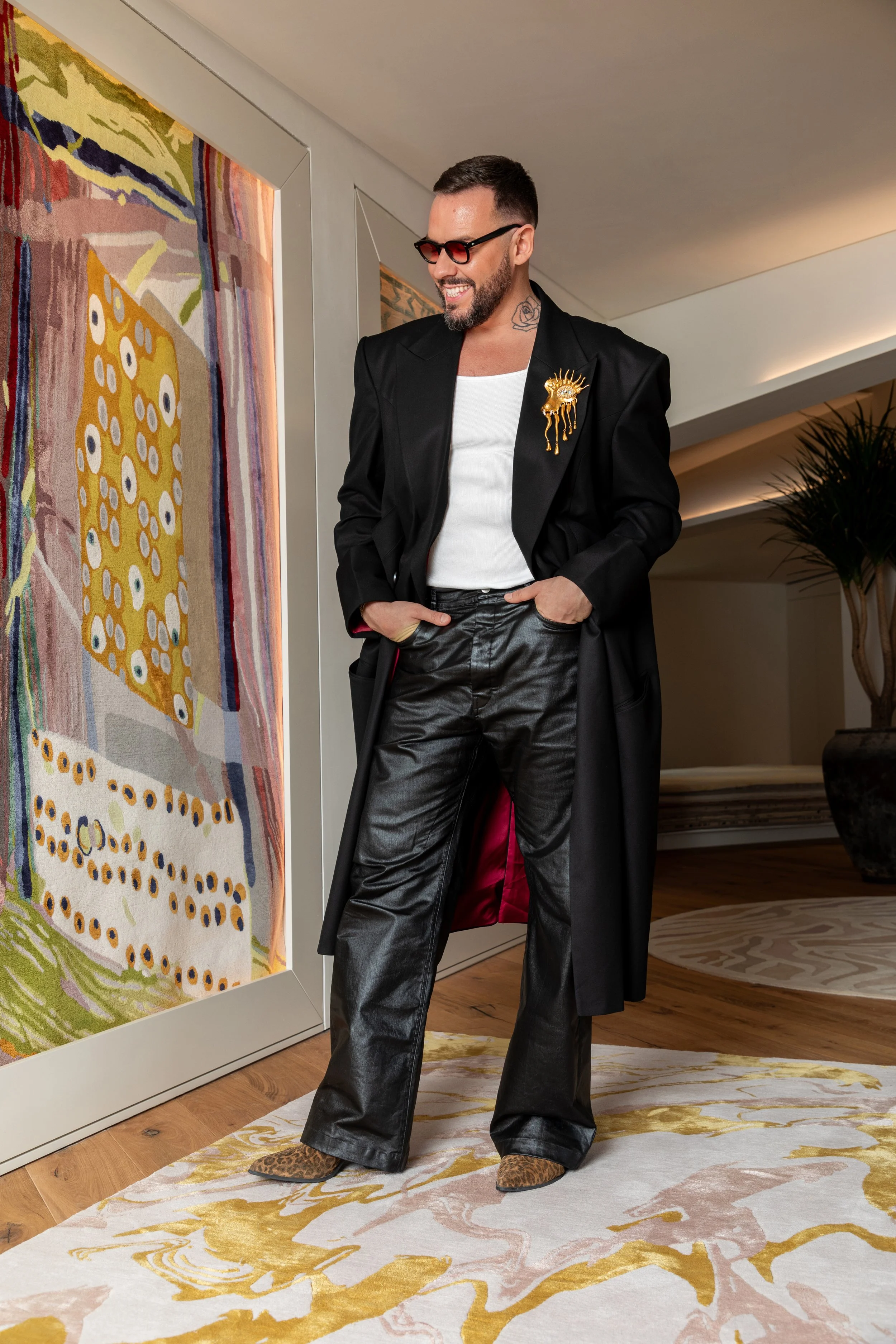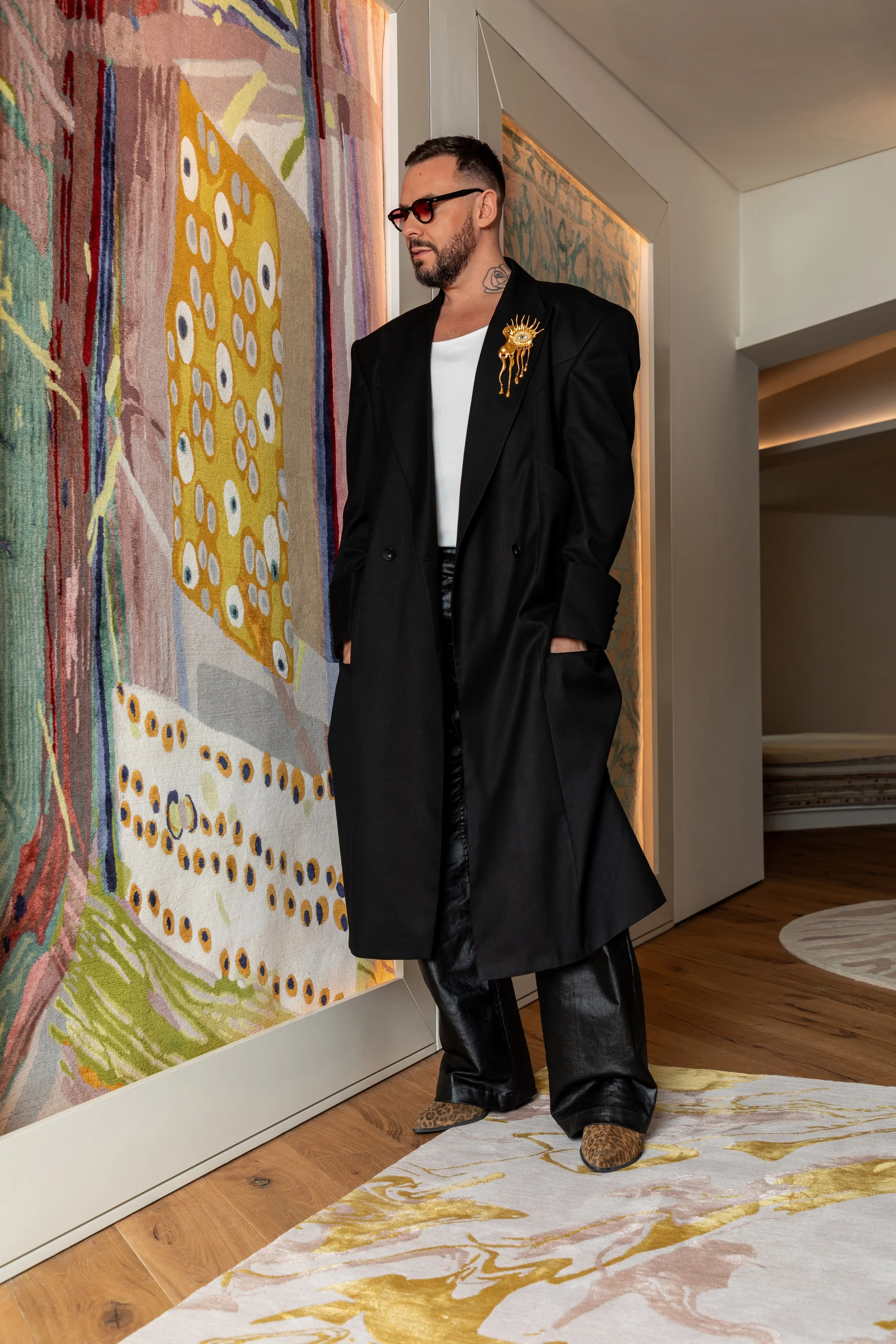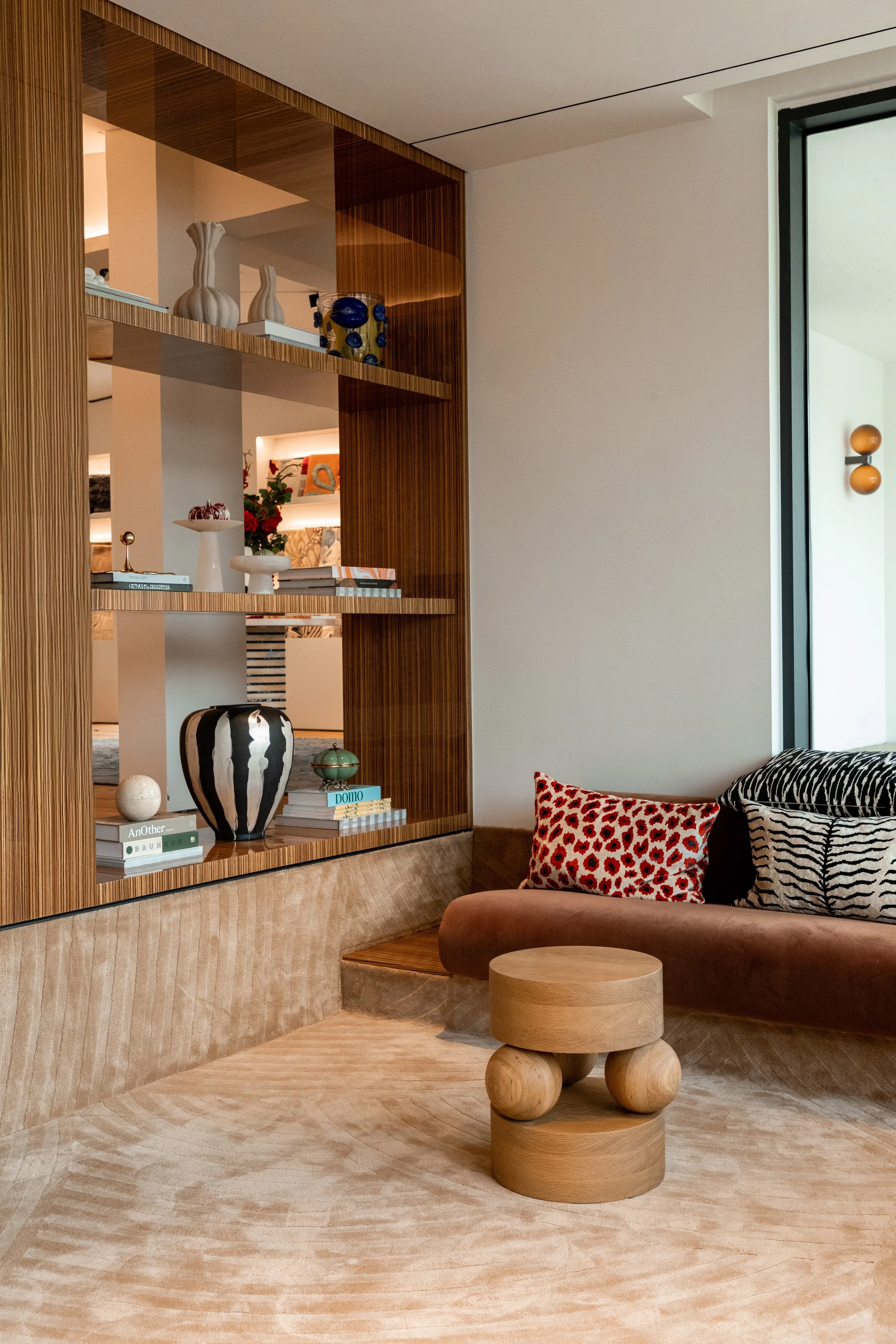A World of His Own : Adil El Alami and the Art of Alkemy
Portrait of Adil El Alami by Rebeka Rysava at Capital D Studio
In a city that thrives on spectacle, Adil El Alami has mastered the rarest craft of all: intimacy. As the founder of Alkemy, he has created a world where luxury is not just seen, but felt—where every detail, every experience, every encounter is steeped in meaning.
After years working with some of the world’s most prestigious brands, Adil recognized a missing link: the human connection at the heart of true luxury. Alkemy was born from that realization—a bridge between heritage and innovation, culture and commerce, art and hospitality.
In this conversation, Adil shares the journey behind Alkemy’s creation, the personal philosophies that drive his vision, and how listening—truly listening—has become his most powerful tool. From the power of saying no to the alchemy of crafting unforgettable moments, he reminds us that in a fast-moving world, magic still exists for those who know where (and how) to look.
MEREDITH DAMOUNI: Adil, I’ve watched you work your magic on other brands for years—with passion, soul, and unmatched style. Seeing you channel that into your own brand, Alkemy, feels like a natural evolution. But where did the idea begin?
ADIL EL ALAMI: Thank you, Meredith. You know, the word “magic” is key. That’s what Alkemy is—turning metal into gold through a seemingly magical process. After working in Dubai for over a decade with luxury brands, I saw a disconnect between the brands and their clients. There was no emotional bridge, no intimacy. Alkemy was born to close that gap. It was never a calculated business idea—it was the next step in my personal journey.
“That’s the power of real storytelling—it’s not about price tags, it’s about care.”
MEREDITH: You talk about emotional connection like it’s a craft. And in a way, it is. It’s also the golden thread of all great storytelling—and real luxury. At Capital D, we always say: art always wins. How does art play into your approach?
ADIL: In luxury, people aren’t buying products—they’re buying feelings, memories, dreams. I’ve always believed in the Maya Angelou quote: “People will forget what you said, they’ll forget what you did, but they’ll never forget how you made them feel.” That’s what I try to do through Alkemy—make people feel seen, known, celebrated.
MEREDITH: And how did you take that leap—from your incredible career into something entirely your own?
ADIL: It wasn’t a straight line. It was emotional. It took trust, intuition, and many long conversations. But Dubai is a city where, if you listen deeply and move with intention, you can do extraordinary things.
I didn’t want to replicate Western luxury.
I wanted to root experiences in Middle Eastern culture, while creating something global and deeply personal.
MEREDITH: That listening shows in everything you do. What makes the perfect VIP experience in the world of Alkemy?
ADIL: No two clients are the same. We don’t believe in one-size-fits-all luxury. Each client is a universe. Whether it’s a curated dinner, a bespoke fashion show, or an intimate suhoor—it all begins with understanding their emotional world. We craft every touchpoint around memory, culture, and their life journey.
Portrait of Adil El Alami by Rebeka Rysava at Capital D Studio
“...but I remember once organizing a helicopter shopping tour for a client. I waited at the
helipad, and they texted: ‘Adil, thank you, but we have our own helipad.”
MEREDITH: Tell me the wildest thing you’ve done for a client.
ADIL: Some things I can’t share, but I remember once organizing a helicopter shopping tour for a client. I waited at the helipad, and they texted: “Adil, thank you, but we have our own helipad.” You can’t compete with that level of access. But another time, for Mother’s Day, I created a photo album using old family pictures I secretly collected. They told me it was the most meaningful gift they’d ever received. That’s the power of real storytelling—it’s not about price tags, it’s about care.
MEREDITH: And that care is what makes Alkemy feel so intimate. But you’ve also been deeply involved in larger brand transformations—like your recent project with The Rug Company.
ADIL: Yes! They came to Dubai without knowing how to approach the local market. I helped them understand the culture and reinterpret their identity in a way that was meaningful here. We chose a villa from the 60s—one of the UAE’s oldest homes—and preserved its DNA. The architecture, the palm motifs, the local materials… it became a true cultural collaboration. Not just a showroom—a home.
MEREDITH: It’s creative direction, even though you don’t call yourself a creative director.
ADIL: Exactly. Alkemy isn’t just fashion. It’s hospitality, interiors, jewelry… it’s lifestyle. I grew up in Paris to a Portuguese mother and Moroccan father. My childhood was steeped in beauty, in the art of hosting, the elegance of rituals. My mother taught me that. She passed away, but everything I do now is a tribute to her.
MEREDITH: That’s so beautiful. It’s more than business—it’s healing. Does that connection to emotion help you find the story within brands?
Portrait of Adil El Alami by Rebeka Rysava at Capital D Studio
ADIL: Yes. Often, founders don’t even know their own
story. My role is to sit with them, understand them, draw it out over coffee, laughter, and conversation. You can’t fake this. You have to feel it.
MEREDITH: Let’s talk about saying ‘no’. It’s something I’ve been thinking about a lot lately.
ADIL: Saying ‘no’ changed my life. Two years ago, I burned out. I was in the hospital for 13 days. An Ayurvedic doctor told me: “You don’t speak English. Because you don’t know the word no.” I started crying. From that moment, I began setting boundaries. And guess what? I became more successful. Clients respected it. I healed. It’s one of the most powerful tools we have—saying no with grace.
The Rug Company Bungalow by Alkemy
MEREDITH: Preach! I want to ask about the future. What’s next for Alkemy?
ADIL: We’re expanding globally—but with purpose. I’m deeply connected to Bali and support several orphanages there. My dream is to open boutique hotels and cultural spaces in places like Bali and Morocco, where fashion, art, gastronomy, and charity come together. A place where you can stay, shop, and give back—where every experience supports something meaningful.
MEREDITH: That’s extraordinary. And it feels like a natural extension of everything you are—
elegant, warm, soulful. One last question: If you could describe the Alkemy experience in three words?
ADIL: Magic. Storytelling. And… love.




